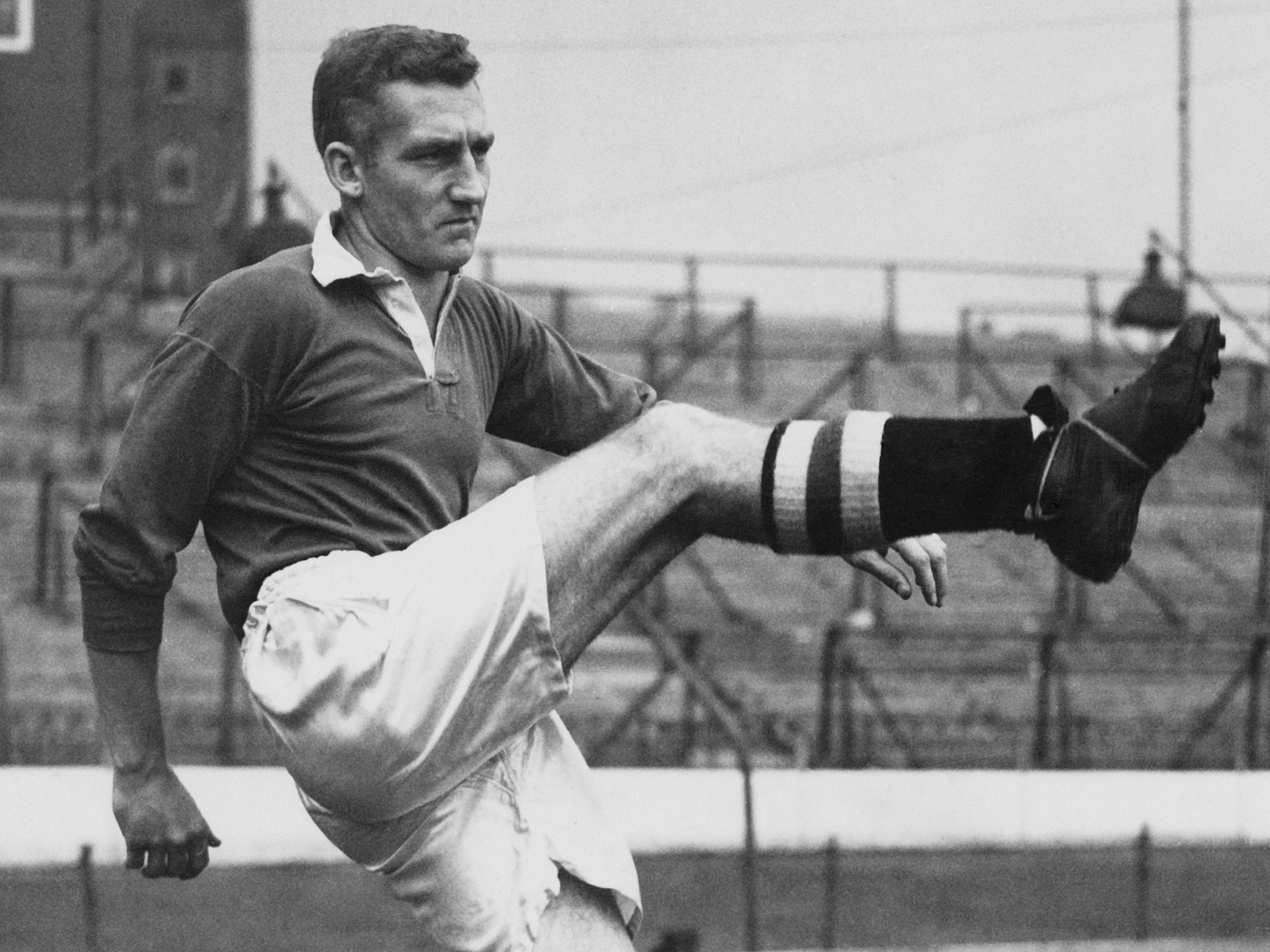Roy Bentley: Last surviving member of England’s 1950 World Cup squad
He started off earning £1 a week for mowing the grass, cleaning the toilets and dressing rooms, and went on to distinguish himself as a centre-forward, helping Chelsea to their first trophy

Your support helps us to tell the story
From reproductive rights to climate change to Big Tech, The Independent is on the ground when the story is developing. Whether it's investigating the financials of Elon Musk's pro-Trump PAC or producing our latest documentary, 'The A Word', which shines a light on the American women fighting for reproductive rights, we know how important it is to parse out the facts from the messaging.
At such a critical moment in US history, we need reporters on the ground. Your donation allows us to keep sending journalists to speak to both sides of the story.
The Independent is trusted by Americans across the entire political spectrum. And unlike many other quality news outlets, we choose not to lock Americans out of our reporting and analysis with paywalls. We believe quality journalism should be available to everyone, paid for by those who can afford it.
Your support makes all the difference.Two contrasting landmarks share prominence in Roy Bentley’s career as a footballer: his role as captain and leading scorer when Chelsea became English champions for the first time, and his appearance in the England team that lost to the United States in one of the greatest World Cup upsets.
There was far more to Bentley’s sporting life, however, than those extremes in fortune. The son of a rugby player, he excelled in his youth at athletics and boxing in his native Bristol and as a cricketer he was coveted by Gloucestershire. But it was football that fired his imagination, and on leaving school at 14 he joined Bristol Rovers as a ground staff boy.
Bentley, who has died aged 93, was paid £1 a week for mowing the grass and cleaning the toilets and dressing rooms. When this was reduced to 10 shillings his father advised him to take up an apprenticeship with Bristol City. During the Second World War he was called up by the Royal Navy, serving on destroyers that escorted Atlantic convoys.
In 1946, having turned out for Liverpool in wartime football, Bentley was bought by Newcastle United and was soon playing in attack with “Wor” Jackie Milburn and Len Shackleton. He scored in their 13-0 rout of Newport County (when “Shack” plundered six goals), which remains the biggest win ever in the top two divisions.
Chelsea paid £11,000 for his services in 1948. Despite being relatively short for a centre-forward at 5ft 10in, he would head their scoring charts regularly in eight years at the club. Indeed, his 152 goals in 367 competitive games makes him the Blues’ fifth-highest all-time scorer, behind Frank Lampard, Bobby Tambling, Kerry Dixon and Didier Drogba.
The 1954-55 season was one of both personal and collective triumph. Under the management of Ted Drake, who instilled a sense of almost military discipline and “family” spirit, Chelsea pipped Wolves and Manchester United to the Football League title – their first major honour – in their golden jubilee year. Bentley scored 21 times, flourishing on the muddy mid-season pitches.
In later years, when he was regularly invited back to Stamford Bridge, Bentley said he was “prouder of that achievement than of my international caps”. He represented England 12 times and scored nine goals between 1949 and 1955. If the low point was the American victory at Belo Horizonte, Brazil, in 1950 – when, he maintained, “the worst referee in the world” denied England three penalties – the highs were a hat-trick against Wales in 1955 and the winner against Scotland at Hampden Park in 1949.
In 1956 he moved to neighbouring Fulham, where he reverted successfully to the position he had played as a teenager, centre-half. With them he reached his fourth FA Cup semi-final with three clubs – each ended in defeat. Another local switch in 1960 took him to Queens Park Rangers where he retired as a player two years later.
Bentley became manager of Reading and Swansea City, where he achieved promotion to the old Third Division. He was the last surviving member of England’s ill-starred 1950 squad and his death means only Frank Blunstone survives from Chelsea’s triumph in 1955.
Roy Thomas Frank Bentley, footballer and football manager, born 17 May 1924, died 20 April 2018
Join our commenting forum
Join thought-provoking conversations, follow other Independent readers and see their replies
Comments